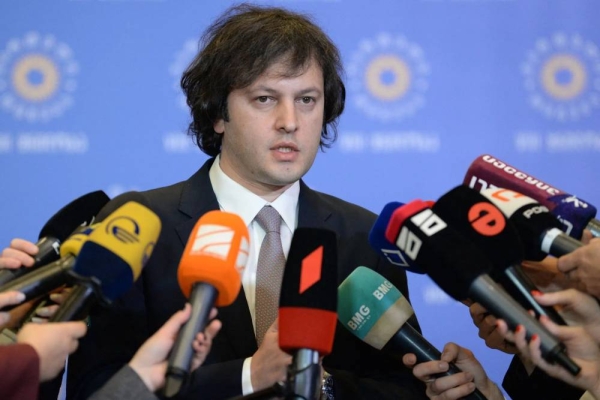Georgian PM Dismisses Election Fraud Claims Amid Opposition Rally
3 min read
Georgian PM Irakli Kobakhidze

Georgian PM Irakli Kobakhidze
Georgia’s Prime Minister Irakli Kobakhidze has firmly rejected allegations of vote-rigging in the recent elections, labeling the results a “landslide” victory for his ruling party, Georgian Dream (GD), which claimed 54% of the vote. In an exclusive interview with BBC’s Steve Rosenberg, Kobakhidze acknowledged that “irregularities happen everywhere” but insisted they were minor compared to the overall peaceful environment at the polls.
The preliminary results from the election commission contrast sharply with exit polls conducted by opposition media, which suggested that four opposition parties had actually won. In response to the results, Georgia’s pro-Western President Salome Zourabichvili condemned what she termed “total falsification” of the vote and called for a mass rally outside parliament on Monday.
Election observers noted a troubling trend, citing an “uneven playing field” and numerous voting violations that may have impacted the election outcome. In light of these concerns, the U.S. and the European Union have urged an independent investigation into the electoral process. U.S. Secretary of State Antony Blinken emphasized the need for Georgian leaders to uphold the rule of law and rectify any deficiencies in the electoral framework.
Despite the allegations, Kobakhidze maintained that incidents were limited to just a few polling stations, with the vast majority operating smoothly. His party has faced increasing criticism for authoritarian tendencies, including the recent implementation of laws that echo Russian policies against foreign-funded media and LGBT rights.
As a result of perceived democratic backsliding, the EU has frozen Georgia’s application for membership. Tbilisi was granted candidate status just last December, with approximately 80% of Georgians expressing a desire to join the EU. In a curious development, Hungarian Prime Minister Viktor Orban congratulated Georgian Dream on its fourth-term victory before the official results were confirmed, raising eyebrows in Brussels due to Orban’s close ties with Russia.
The head of the European Council, Charles Michel, has urged a thorough investigation into alleged electoral irregularities. However, Kobakhidze argued that while some incidents occurred, they did not detract from the overall legality of the elections. In response to the opposition’s claims of vote theft, leaders from the four dissenting parties have vowed to boycott parliament and reject the results.

Zourabichvili, surrounded by opposition leaders, declared that the vote was invalid and called on supporters to rally on Rustaveli Avenue to defend their constitutional rights. Allegations have also surfaced regarding potential Russian interference in the election, with Nika Gvaramia of the Coalition for Change asserting that there was a coordinated effort by Russian intelligence.
The opposition now holds 61 seats in the 150-member parliament, while GD claims 89 seats. Despite maintaining a majority, GD’s inability to achieve a more substantial foothold means it cannot easily implement sweeping constitutional changes, including potential bans on opposition parties.
While exit polls suggested the opposition had actually secured a larger share of the vote than GD, Kobakhidze dismissed these claims, accusing opposition parties of fabricating evidence. He contended that prior accusations of electoral fraud from these groups in past elections indicated a pattern of dishonesty.
This election was notable for the introduction of an electronic vote-counting system, which the prime minister claimed eliminated the possibility of manipulation. However, various monitoring groups have reported serious violations, including intimidation and ballot-stuffing, leading to claims that the results do not accurately reflect the will of the electorate.
Per Eklund, a former EU ambassador involved in monitoring the election, highlighted that voter intimidation was rampant, undermining the electoral process’s integrity.
Meanwhile, GD’s founder, billionaire Bidzina Ivanishvili, has fueled anti-Western sentiments, alleging that a “global war party” aims to drag Georgia into the Ukraine conflict. This rhetoric raises concerns about Georgia’s geopolitical orientation, particularly following Russia’s invasion in 2008.
Russian officials welcomed GD’s victory, interpreting it as a sign that Georgia may pivot closer to Moscow. Russian foreign ministry spokeswoman Maria Zakharova dismissed the notion of a European future for Georgia in light of the election’s aftermath.
Kobakhidze, however, rebuffed claims that his government is pro-Russian, asserting that Georgia maintains no diplomatic relations with Russia due to ongoing territorial occupations. His statements highlight the complex and fraught political landscape in Georgia as it navigates its path between East and West.